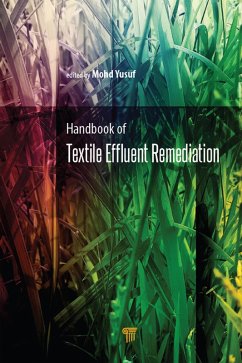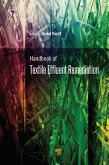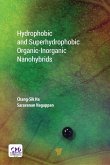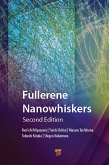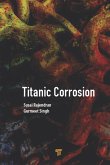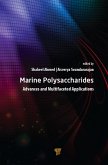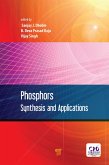The book discusses emerging and suitable treatment systems that are viable, efficient, and economical. In this context, it provides an array of several traditional as well as advanced treatment practices for textile effluents. It covers research-oriented descriptions of textile wastewater treatment that can be adopted by scientific communities, academicians, and undergraduate and postgraduate students of industrial engineering, materials science and engineering, physics, and chemistry. It offers several interesting methodologies and aspects of current dimensional research through user-friendly content, tables, and figures and provides up-to-date literature on important and useful information for textile effluents, their impact on the environment, and advanced remediation processes. Needless to say, this book is of immense use to global researchers, academicians, and consultants engaged in various streams of wastewater treatment science.
Dieser Download kann aus rechtlichen Gründen nur mit Rechnungsadresse in A, B, BG, CY, CZ, D, DK, EW, E, FIN, F, GR, HR, H, IRL, I, LT, L, LR, M, NL, PL, P, R, S, SLO, SK ausgeliefert werden.
Hinweis: Dieser Artikel kann nur an eine deutsche Lieferadresse ausgeliefert werden.

